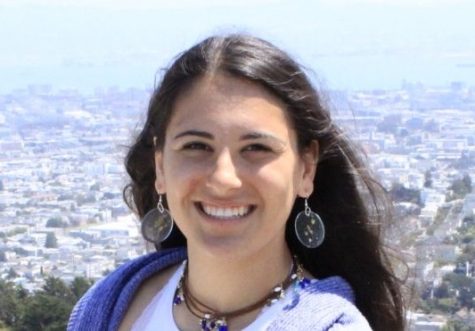New gun-control law allows school administration to report dangerous students
Assembly Bill No. 61 is a new gun control law that will allow counselors and teachers to report dangerous students starting in Sep. 2020.
Governor of California, Gavin Newsom, amended an existing bill on gun violence restraining orders on Aug. 30, 2019. This new law will allot employers, coworkers, teachers, and counselors the right to report employees and students deemed a threat to themselves or to others. Both immediate family members and police officers have already had this right and will continue to.
“We clearly have a problem in America with school shootings, and we needed to do something,” said Rachael Johnson, an English teacher at Monte Vista. “It’s a step in the right direction to get guns removed from houses with kids who might be a danger to themselves or to other students.”
According to Gunviolencearchive.org, there have been over 350 mass shootings in the U.S. this year alone. Counselor Christy Brown suggests that this new law is a step towards our government acting preemptively rather than acting in reaction to tragedy.
“The pro [of the law AB-61] would obviously be that, if a student is an actual danger, we could prevent something from happening,” Brown said.
The law AB-61 does not aim to take guns away from all gun-owning families, nor does it regulate the use of those guns. However, those reported do not have a say in whether or not their guns will be taken away, and, if a judge finds one guilty, all guns in their possession will be confiscated for a year without renewal of the order.
Concerns are also raised for gun-owning students who are not well-connected with Monte Vista’s administration. They worry that this new law could potentially be abused if students were falsely accused of being dangerous.
Brown holds the same fears. She believes that, although teachers and counselors have a lot of knowledge, they need to be cautious and detailed if they were to report a student.
“It’s really hard to know [if a student is dangerous], and so you wouldn’t want to report a student and have that stereotype laid upon them if there was no actual danger,” Brown said.
Teachers and administration have to be wary in who they report, but Johnson explains that it may be easier to differentiate between a student that isn’t a threat and one who may be considered dangerous.
“Sometimes in [students’] writing, sometimes in hearing conversations in the hallway, in things like that, you can see signs of dangerous behavior,” Johnson said. “In English, it usually comes out in writing.”
In response to these concerns, Monte Vista’s on-campus officer, Charlie Caruso, states that most laws have the potential to be misused, but that doesn’t necessarily mean that they will be.
“For almost any law, you always have some worry of there being an abuse of it,” Caruso said. “I don’t particularly see how a teacher or counselor is going to abuse this. Is there potential? Sure. Anyone can abuse anything. But I think it takes a lot for a teacher or counselor to say, ‘I have worries about this kid.’”
Caruso also believes that AB-61 is a good step forward because it gives teachers and counselors a right that they didn’t have before. Danville, as well as other cities in California, could especially benefit from a new perspective on students who may be or may become dangerous.
“The caretakers of our community — like the counselors and teachers at school — have experience working with people, and they can figure out if a person has issues and needs counseling or if they are maybe more dangerous,” Caruso said.
And while this law does not substantially affect law force and policemen, AB-61 does allow for teachers and counselors, who spend a lot of time with students, to take action on America’s expanding problem with mass shootings.
“To a police officer on the street, this law is probably not going to affect them,” Caruso said. “Instead, AB-61 gives more authority to teachers and counselors, and it’s good that they now have some ability to present a case and give information about a student.”

Angelina Izmaylova is a senior who is the CC Spin Editor and Breaking News Editor for The Stampede....

Seta Salkhi is a senior in her third year of the journalism program. As this year’s managing editor,...






